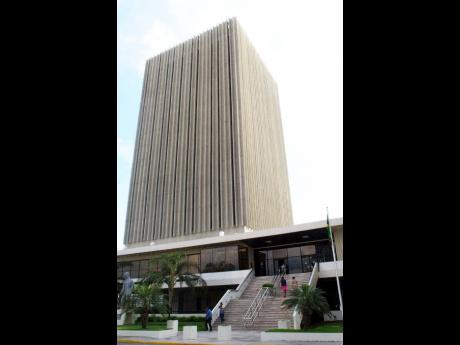BOJ moving to regulate, grow $4 billion e-payment business
It is expected that for the year just ended, there were more than the 134 million electronic retail payment transactions worth in excess of $4 billion, which the Bank of Jamaica, BOJ, recorded for 2019. Against this background, the central bank has released a consultation paper on approaches it will be taking to regulate the operation of electronic retail payment service providers (PSPs) and is seeking industry feedback on its proposals by January 15.
Electronic payment firms have mushroomed in numbers to cash in on the growing e-commerce business made even bigger by a more pronounced stay-at-home lifestyle brought on by the coronavirus pandemic. And the BOJ also has been encouraging the growth of the business it is now bent on bringing more firmly under its bank supervision and financial regulations powers.
Work on a legal operating framework for PSPs, which are not deposit-taking institutions, commenced earlier this year and follows on the BOJ’s withdrawal of its guidelines for electronic retail payment services guidelines in early 2019. Deposit-taking payment providers are covered under the central bank’s existing bank-supervision remit.
At the time of the 2019 guidelines withdrawal, the BOJ officials said the rules were not enough for supervision and enforcement related to the specific activities of PSPs. Proposed amendments to the Payment Clearing and Settlements Act are part of the banking regulator’s policy proposals and are expected to plug the current legal gaps.
The amendments are also intended to bring Jamaica’s laws on payment-services regulation in line with international requirements for payment oversight and anti-money laundering and combating financing terrorism supervision.
Once amended, the BOJ will have the power to conduct onsite and offsite examinations and inspections of the premises of PSPs and their agents, carry out investigations in relation to the activities of licensed and unlicensed providers, and impose penalties for specified offences under this act and related regulations. The central bank is also moving to develop codes of conduct for the market behaviour of PSPs and their agents as well as to take on powers to determine who becomes a licensed payment-service provider in Jamaica.
The central bank’s moves to tighten controls in this area is in response to the rise in popularity of e-payments and the BOJ’s stated desire to create an environment that drives innovation in payment services while reducing risk, protecting consumers while promoting financial inclusion.
The central bank has been encouraging the adoption of digital payment services, and in May 2020, introduced its so-called “sandbox” regulatory platform for testing and deploying e-payment technology, including prepaid cards.
Electronic retail payment service was introduced to Jamaica eight years ago. Among the earliest was the Jamaica Co-operative Credit Union League’s CONEC product, launched in 2013. The system was expected to gain a market of 50,000 users by the end of 2014 but underperformed, with just 6,000 accounts in that year and 20,000 accounts a year later.
The fight for market share became harder for CONEC when National Commercial Bank (NCB) launched its Quisk payment system in August 2016. Quisk was introduced as a secure, mobile money account that enabled users to send and receive money and pay bills via text messaging using a six-digit personal number or PIN to access accounts. The payment system now allows cardholders to complete in-store purchases through NCB’s merchant network, pay utility bills, receive and send money, and do online betting.
Use of the NCB Quisk payment solution was, ultimately, aimed at reducing lines and lowering retail banking costs, but much of NCB’s marketing was around the payment solution’s ability to capture Jamaica’s unbanked population.
This was followed by Alliance Payment Services’ roll-out of the E-pay cashless system in schools, which marked the removal of cash transactions on campuses and real-time financial reports for administrators. It also provided another avenue for students on the Programme of Advancement Through Health and Education to receive cash and make purchases.
GraceKennedy Money Services’ launch of the GK MPay mobile payment platform came in 2017, and that year, CONEC withdrew from the market. GraceKennedy withdrew MPay two years later. It was shown that phone-credit purchases accounted for most transactions on both CONEC and GK MPay.
Today, Jamaica’s electronic retail payment-service providers include Quisk, E-Pay, Sagicor Bank’s My Cash. and Lasco Financial’s Lasco Pay.
Lasco Financial recently began a test run of a new tech-driven cashless system that will see the financial firm acting as somewhat of a supermerchant to a banking institution. The microfinance company plans on creating multiple accounts for business owners, particularly micro and small businesses, to conduct transactions in-store and online.
Lasco Financial will hold payments made via debit or credit cards to business owners registered on its platform, after which settlement would be done through its network of MoneyGram outlets or sent to its co-branded prepaid Mastercard – Lasco Pay.


